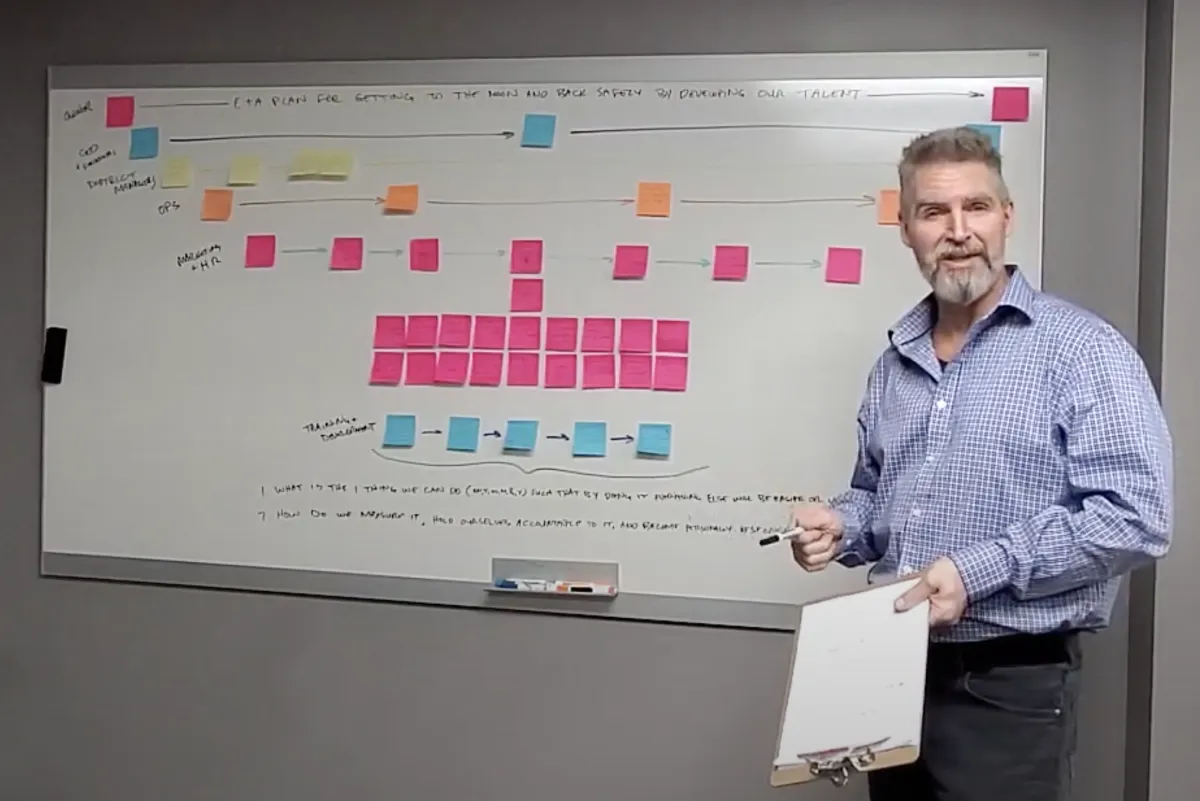thepossibleman.com
Results Coaching
Turn Your Breakdowns Into Breakthroughs

Want To See What You Can Do With A Bit Of Free Coaching?
So What The Hell Is Coaching?
Coaching is typically associated with various categories: sports, business, life, relationship coaching, etc., each with its own specialized roles. For example, in sports a hockey coach is distinct from a football coach. In business, a marketing coach differs from a sales coach.
But coaching, at its core, is simply one person guiding another to achieve a desired outcome. Though it often implies some kind of skilled, formal instruction, the word itself can apply to any impromptu teaching or sharing of distinctions. For example, a parent coaching a child to finish their homework. Or a child coaching a parent on how to use new technology.
Generally, a professional coach works with individuals, couples, teams, or organizations based on expertise and common interests. Coaching sessions can vary in duration, from a quick instruction between friends (e.g., "Run, Forest, Run!") to a structured, long-term relationship lasting many years.
In my own practice, I love helping people identify and produce the specific results they say are most important to them. Whether it's Life or Business coaching, I generally focus on results. Which is actually a bit ironic, because I often tell people if they are living for their goals they are missing the point.
The reasons clichés become clichés is because they're true. Life really is about the journey, not the destination. When setting your objectives, whether working with a coach or not, here is something to remember: More important than what you set out to achieve is who you become along the way.

A good coach will help you hold yourself accountable and provide directions telling you where to improve. A great coach will help you be responsible and provide distinctions showing you how to improve.
Before accepting you as a client, I want to hear about your vision, values and objectives. Sometimes, questions of that nature get a deer-in-the-headlights response. So we'll start by talking about what is most important to you. I want to know more than just your goals. I want to know your reasons for pursuing them, and what will things be like for you once you have achieved them.
In other words, what exactly are you looking to be, do, have or experience, within what time frame, and why is it important? Beginning with the end in mind, knowing what you value, we can then reverse engineer a path or strategy for you to safely get there.
What Does A Coach Do?
I can't speak for others, but after almost 30 years of coaching, here is the essence of what I can do for you and your team. I can help you breakthrough your unconscious internal resistance to attain your desired external reality. In theory that's the plan. In practice, it often looks like this:
Coach: So what do you want to accomplish on our call today?
Client: Well, I've still got that problem with my sales people. They still aren't hitting their quotas.
Coach: Did you roll out those call reports you said you were going to start using last week?
Client: No.
Coach: What happened?
Client: I'm not really sure. Guess I am always just too damn busy doing other things.
Coach: Isn't your next milestone to have 100% of your sales people hit their weekly call quota?
Client: Yeah, but they all suck! None of them can sell!
Coach: Maybe they are always just too damn busy doing other things.
Client: Ha ha. Really though, what should I do?
Coach: You're the owner. You've got 10 sales people. How many of them hit their quota yesterday?
Client: I don't know those numbers.
Coach: You've told me you are committed to increasing revenue by 20% this quarter. Right now, is there anything more important to that objective than knowing how each of your salespeople is performing everyday?
Client: No. That's the same thing you asked me last week.
Coach: Has anything changed?
Client: No.
Coach: Ok then what is most important this week? What are you committed to?
Client: Rolling out those call reports.
Coach: Can you foresee anything that might stop you from doing that?
Client: Not that I can think of.
Coach: What about your busy schedule?
Client: I will just have to make it a priority.
Coach: And what about training the new manager that you hired?
Client: No, that's under control. She's working out really well.
Coach: Great. How are things at home?
Client: Well, my wife is still upset with me about taking away our daughter's cell phone, but I think we're through the worst of it. I apologized like you said, even though I know that I was right.
Coach: Right about taking away the phone? Or right about not talking to your wife about it, first?
Client: Yeah, that's what I apologized for. Not talking to her about it.
Coach: Okay, good. Let's keep on eye on your needing to be right. Is there anything else you want to talk about today?
Client. Nope. That's it. Thank you.
Coach: You're welcome. Talk to you again next week.